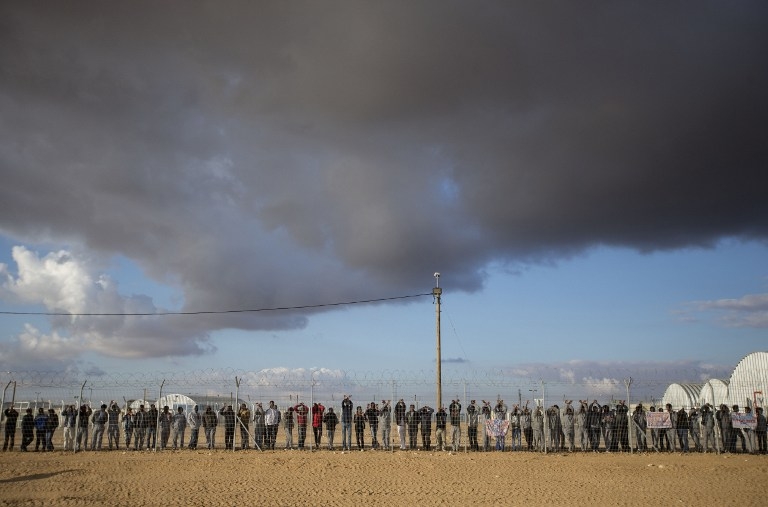Knesset speeds to pass anti-infiltration law ahead of dissolving

Israel's Knesset is expected to dissolve itself on Monday evening and officially set the next general elections for 17 March.
Ahead of dissolving, the Knesset is scheduled to have a second and third reading of an amendment to the 'anti-infiltration' law which could see the bill passed even after it was struck down by Israel's High Court in September.
The amended bill calls for anyone entering Israel illegally to be held in Saharonim detention centre for up to three months, after which he or she will be moved to the Holot detention centre for a period of up to 20 months. Both facilities are deep in the southern Negev desert.
It also lays out stiffer penalties for those employing "infiltrators" - a government term for illegal migrants, most of them Africans who slipped across the border from Egypt.
But rights groups denounced the move, saying it made a mockery of the High Court's decision and would only offer an interim solution to the question of how to deal with asylum seekers and other illegal immigrants.
The original law, struck down by the High Court, would have allowed the government to detain illegal migrants for up to a year without trial.
That ruling also ordered the closure of Holot detention centre, where an estimated 2,000 African detainees are currently being held, within 90 days.
The bill is expected to be supported by Likud, Yisrael Beiteinu, Habayit Hayehudi and Shas with Labor, Meretz, Hadah, United Arab List-Ta'al and Balad opposing it, according to Haaretz.
Stay informed with MEE's newsletters
Sign up to get the latest alerts, insights and analysis, starting with Turkey Unpacked
Middle East Eye delivers independent and unrivalled coverage and analysis of the Middle East, North Africa and beyond. To learn more about republishing this content and the associated fees, please fill out this form. More about MEE can be found here.




